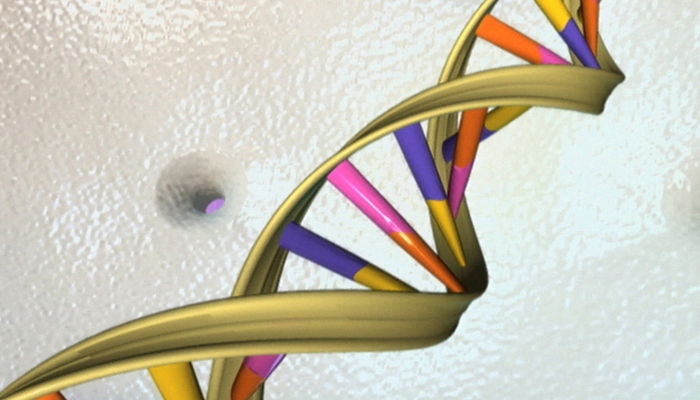Pakistani girl cured of thalassemia in China
China's CS-101 gene-editing drug successfully ends transfusion need for four-year-old Aiza
A four-year-old Pakistani girl diagnosed with severe thalassemia has been successfully treated with a Chinese-developed gene-editing drug, in what is reportedly the first use of the technology on a foreign minor, China Daily reported, citing the Children’s Hospital of Fudan University in Shanghai.
The girl, nicknamed Aiza, had relied on regular blood transfusions to survive. According to hospital officials, her condition improved significantly after receiving treatment earlier this year, ending her dependence on transfusions and allowing her to return to a normal life.
A small ceremony was held on Tuesday to celebrate her recovery.
Aiza was brought to Shanghai by her parents in January to undergo an experimental gene-editing therapy known as CS-101, a base-editing drug developed to treat severe beta-thalassemia.
The treatment is part of a clinical research initiative launched in 2023, led by Professor Zhai Xiaowen in collaboration with CorrectSequence Therapeutics, a Shanghai-based biotechnology firm.
The hospital reported that a total of four patients, including Aiza, have so far received the therapy, with results indicating encouraging safety and efficacy outcomes.
“With the meticulous care of the hospital’s multi-disciplinary team, the child’s total hemoglobin concentration has exceeded 100 grams per litre, allowing her to successfully get rid of blood transfusions,” said Dr Qian Xiaowen, who supervised her treatment. “The entire treatment process progressed smoothly.”
Doctors noted that patients with severe forms of thalassemia generally require monthly transfusions throughout their lives and face life-threatening complications if untreated.
Aiza’s father, Muhammad Adeel, a 40-year-old physicist and former postdoctoral researcher in Hong Kong, expressed his family’s gratitude during the ceremony by offering flowers and a thank-you card to the medical team.
He said the family experienced both exceptional medical care and emotional support throughout the treatment process. Adeel added that Aiza, the second of his three children, experienced emotional ups and downs during her recovery, but the healthcare workers supported them throughout.
While working in Hong Kong, Adeel began searching for a permanent treatment for his daughter. In April of the previous year, he discovered online that the CS-101 therapy had shown success in other paediatric patients and reached out to the company to pursue treatment.
As part of the procedure, doctors collected Aiza’s autologous hematopoietic stem cells, applied the CS-101 drug to precisely edit specific genetic targets, and reinfused the modified cells into her body.
The edits reactivated essential protein expression and restored the haemoglobin’s oxygen-carrying function. As a result, her haemoglobin levels rose to those of a healthy individual, eliminating the need for further transfusions.
At the Tuesday ceremony, the hospital presented Aiza with gifts and offered well wishes for her continued health and happiness.
CorrectSequence Therapeutics also gifted a card that read: “Wish your life be filled with prosperities and happiness. Your smile and love shall enlighten more lives in the world.”
Thalassemia is an inherited blood disorder with a high prevalence in the Mediterranean Basin, Middle East, Africa, Southeast Asia, and southern China.
“This success will help accelerate the clinical translation of China’s original gene-editing technology,” said Professor Zhai, who also serves as the hospital’s vice-president. “It offers hope of a one-time cure for patients worldwide suffering from the disease.”
Zhai added that the hospital and CorrectSequence Therapeutics are exploring the use of the same technology to treat children with other genetic metabolic disorders.
-
Lady Gaga details how eating disorder affected her career: 'I had to stop'
-
Celebrities who struggle with infertility
-
How Kate Middleton's hyperemesis gravidarum left her 'not the happiest'
-
Sharon details late husband Ozzy's final days during his sickness
-
Eric Dane's death becomes symbol of ALS awareness
-
Bella Hadid opens up about 'invisible illness'
-
Inside Kim Kardashian's brain aneurysm diagnosis
-
Chappell Roan explains fame's effect on mental health: 'I might quit'












